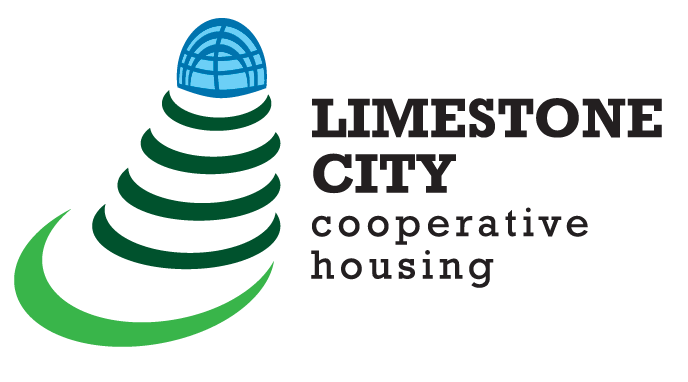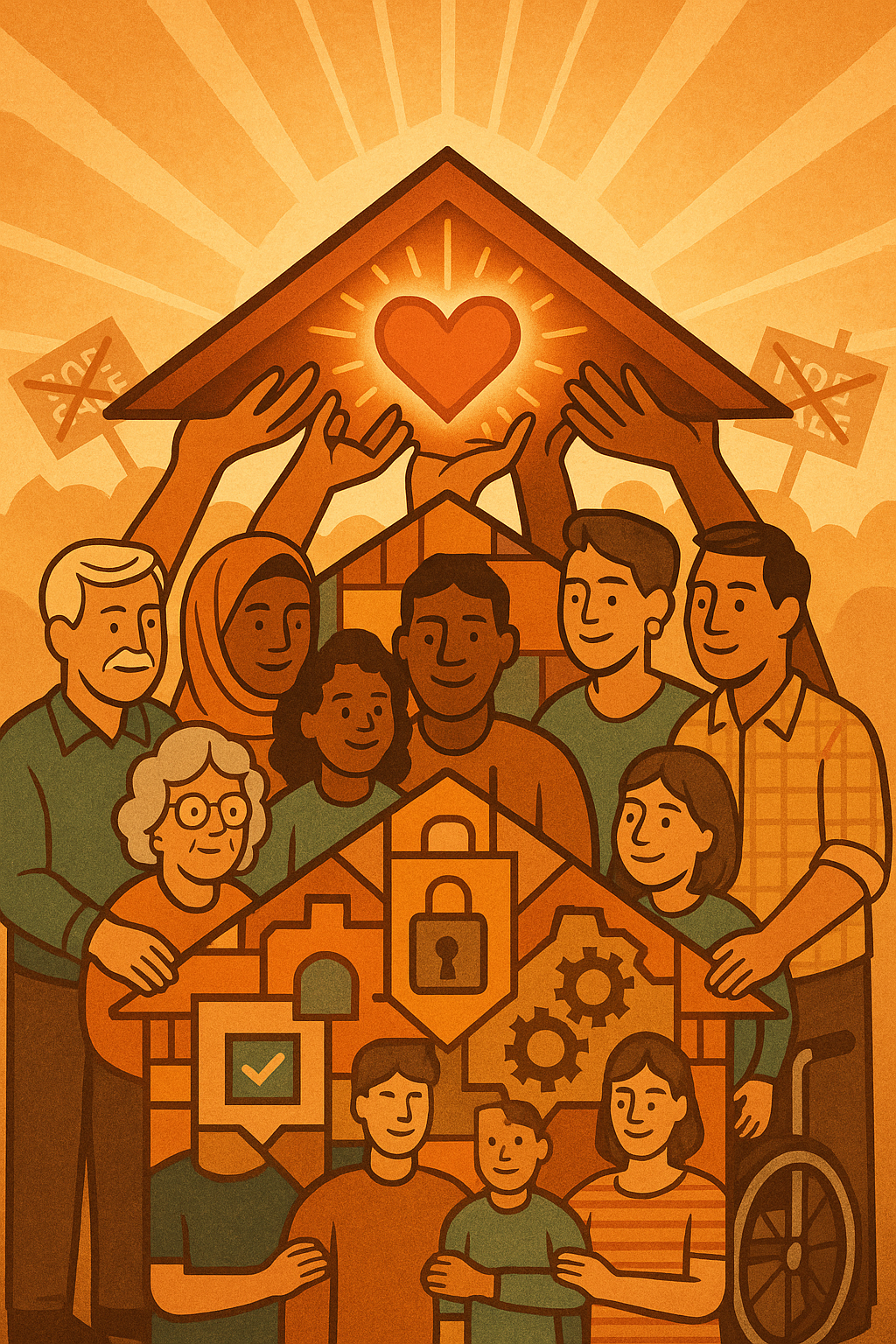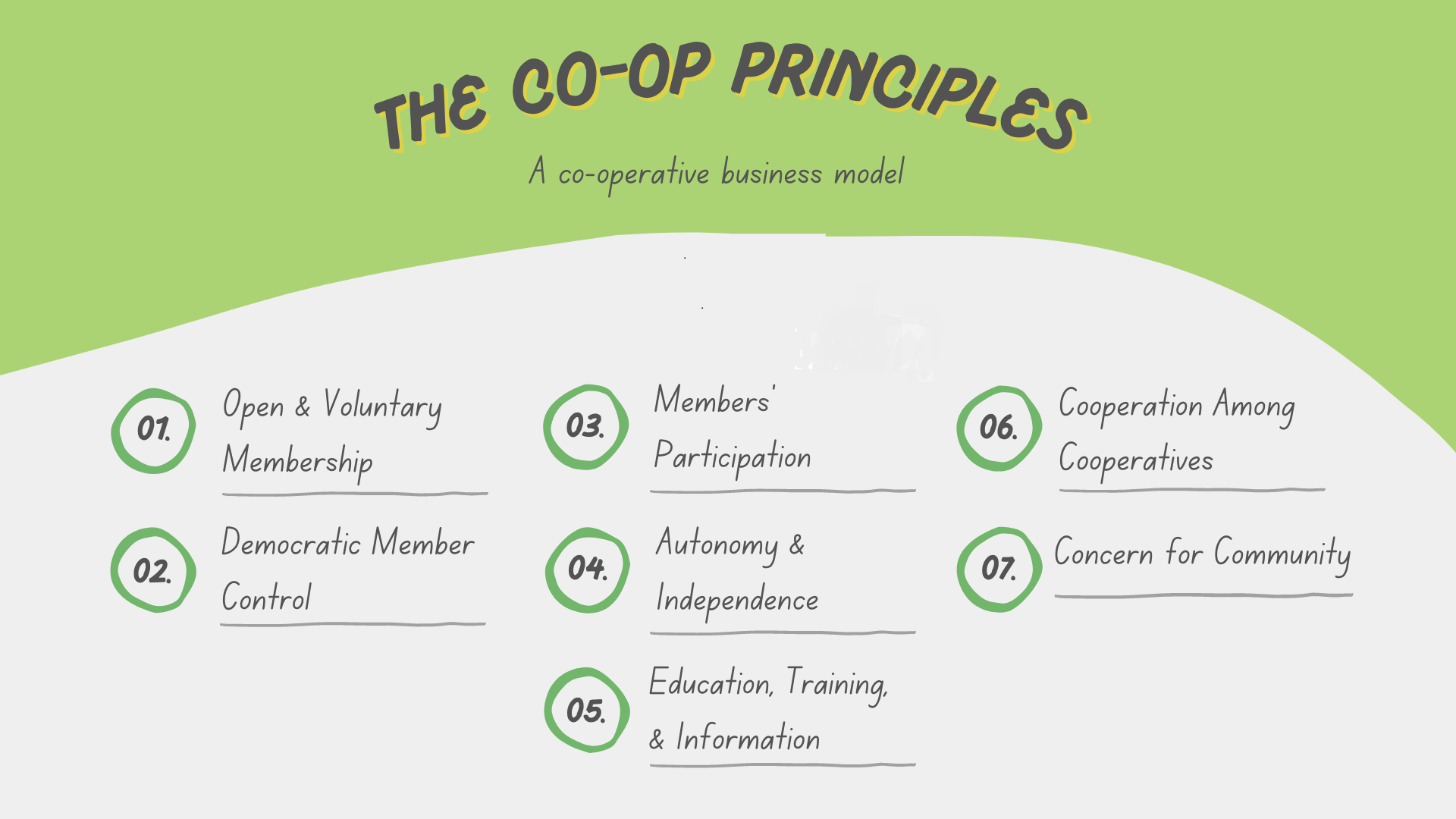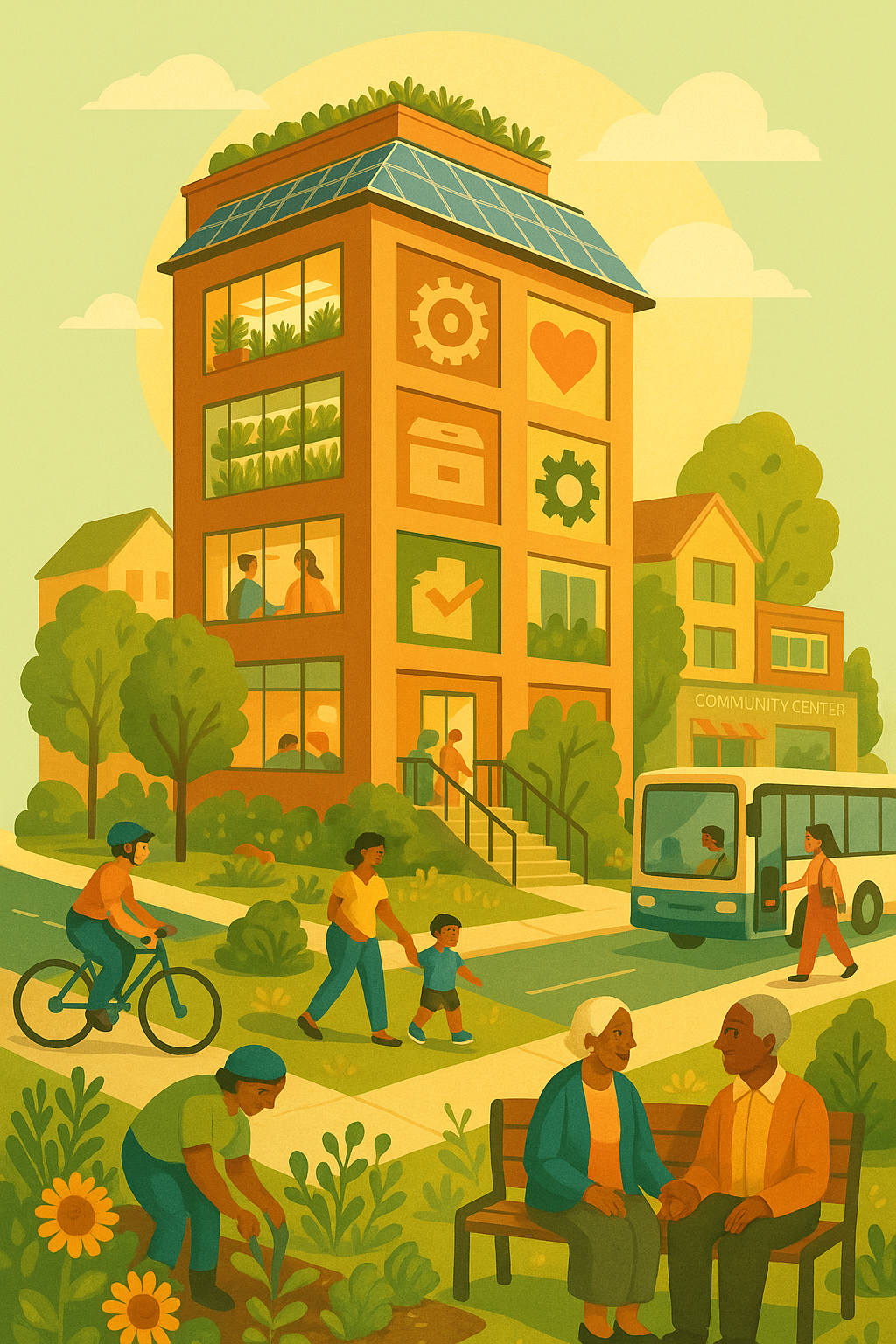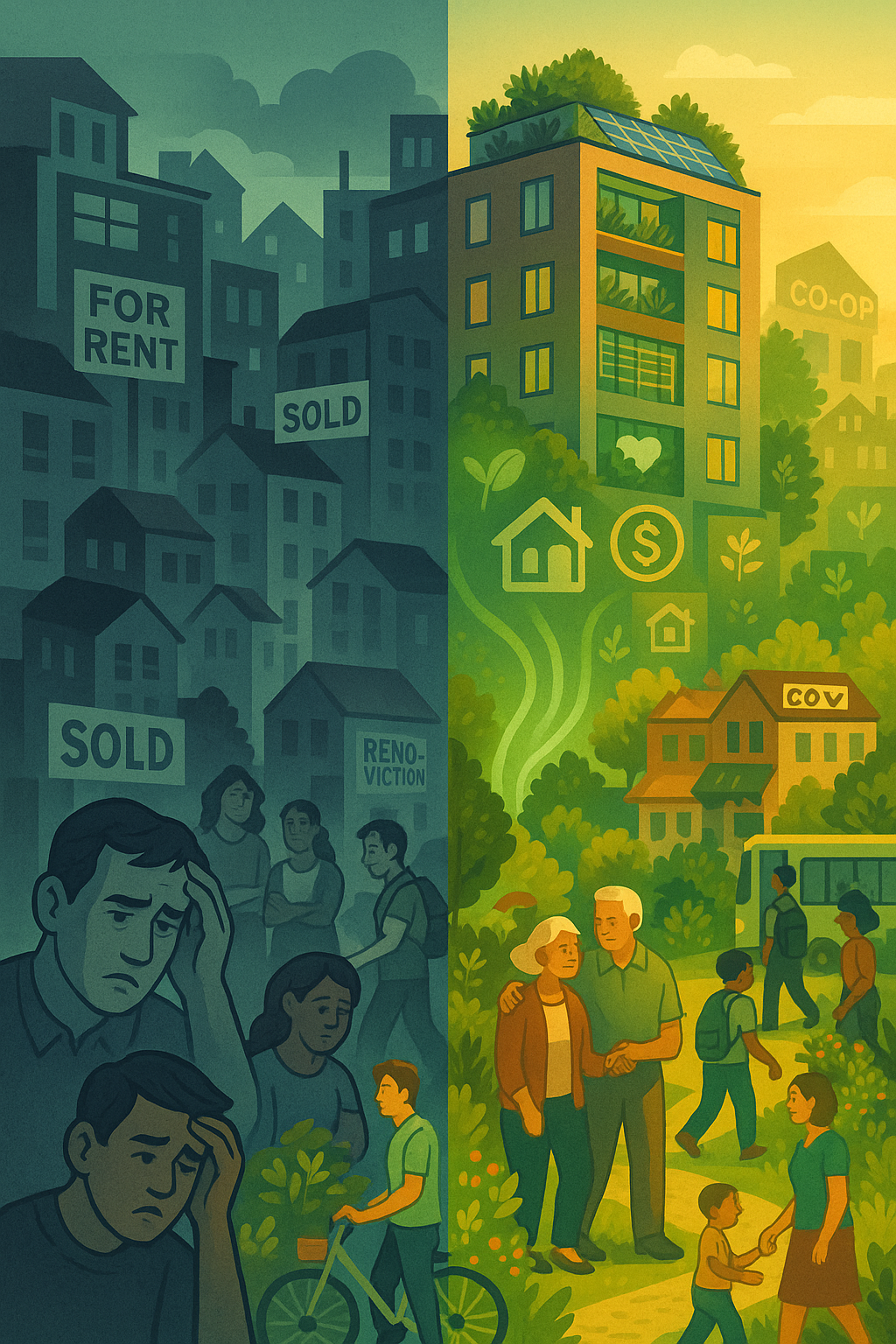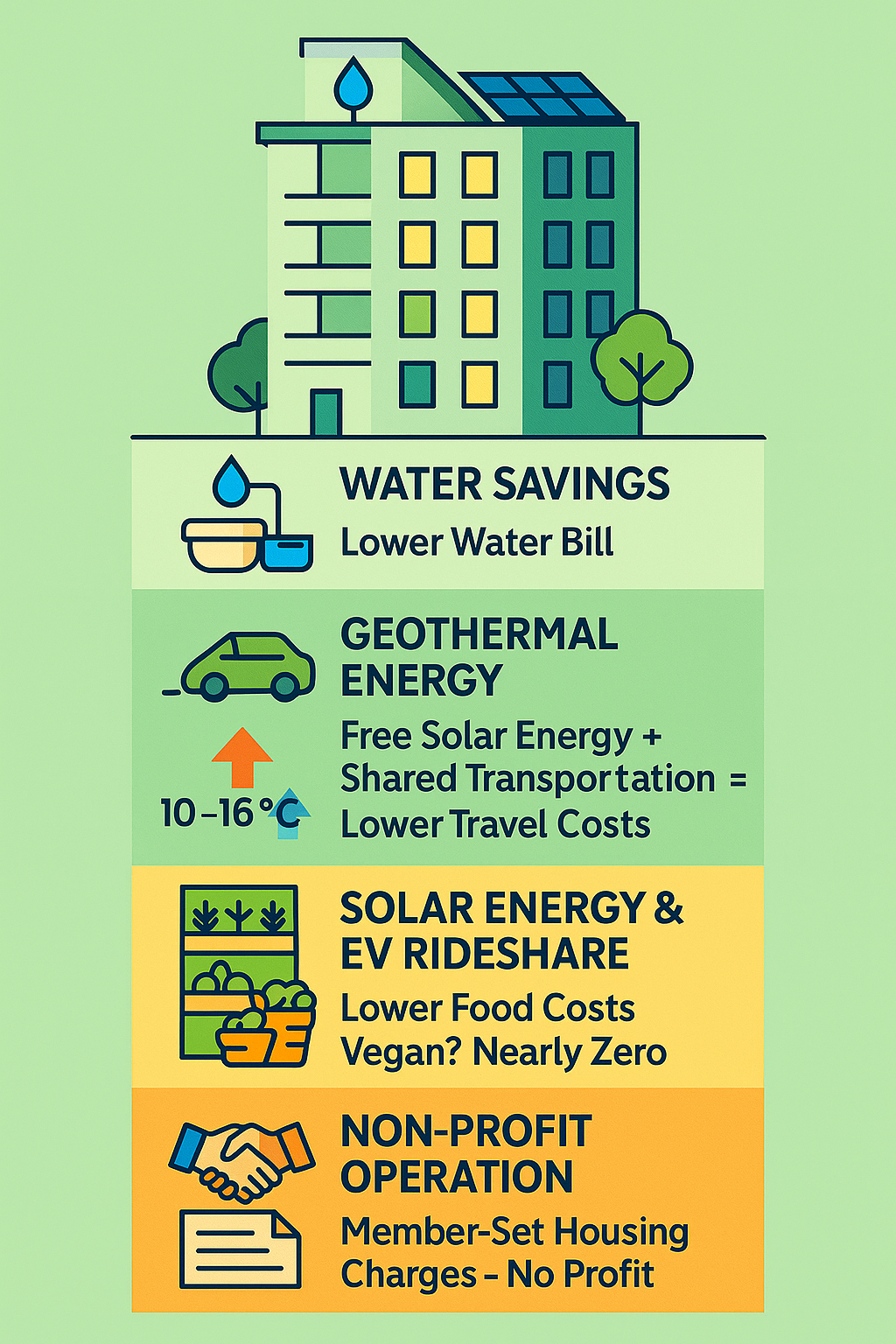What Are Housing Co‑ops?
Co-operative housing is a distinctive form of attainable housing where all members share equal ownership of the co-operative corporation jointly, but not severally.
Jointly means members own the co-op together and share all ownership rights as a group.
Not severally means no member can separate or sell their “portion” of ownership apart from the group’s ownership.
This model challenges the over-commodification of housing by removing it from the speculative market and treating it as a shared human necessity rather than an investment vehicle. By prioritizing collective well-being over individual profit, co-operatives ensure that homes remain affordable for current and future members, build stability that supports long-term community relationships, and reinvest any surplus back into improving the living environment, sustainability measures, and member services—rather than extracting wealth from the community.
In a housing co-op, members collectively govern and operate their community. Ultimate authority rests with the members as a whole, who elect a Board of Directors from among themselves. The Board sets policies, oversees daily operations, ensures legal compliance, and safeguards the co-op’s goals.
In short, housing co-ops offer a third way of living—neither renting nor traditional homeownership. Members live in homes owned by their collective, with the people making decisions being the same people who live there. The result is a self-governed, community-driven approach to housing that fosters connection, security, and shared responsibility.
What Are the Perks of Living in a Co‑op?
One of the greatest advantages of co-operative housing over renting is the power of self-governance. As a member, you have a direct say in decisions about your home—voting on everything from housing charges to renovation priorities.
Co-ops also foster a strong sense of community. Members contribute a set number of volunteer hours each month, working together to maintain and improve their shared home. This hands-on involvement builds trust, connection, and pride in the place you live.
Another major perk is affordability. Co-ops typically offer housing charges below market rates, and LCCH goes a step further by providing access to abundant, healthy food through our integrated vertical farm—further lowering the cost of living while supporting your well-being.
What is Expected of Members?
Members are expected to work together with their neighbours and co-op staff to create a better quality of life for everyone in the community. This includes contributing a set number of volunteer hours over a given period, with the exact amount decided by a vote of the membership. For LCCH, preliminary estimates suggest about four hours per week per household.
Members are also encouraged to actively participate in the life of the co-op—attending and voting at the Annual General Meeting, joining committees and work groups, and approaching co-op life with a community-minded outlook.
LCCH fosters a learning organization mindset, helping members develop skills, share knowledge, and contribute to effective governance and operations. By working together in this way, members help the co-op thrive while also supporting their own personal and community growth.
Co‑op Housing and Neighbourhood Health
Healthy neighbourhoods bring together homes, employment opportunities, amenities, and services within close proximity. They encourage active transportation such as walking, cycling, and public transit, and offer housing choices that meet the needs of people across a range of incomes, life stages, and abilities. Housing affordability, accessibility, and neighbourhood well-being are also deeply connected to cultural recognition, environmental sustainability, and public health.
Co-operative housing—especially LCCH—embodies these principles. By providing secure, affordable, and accessible homes in a mixed-use, community-oriented environment, LCCH strengthens neighbourhood resilience and inclusivity. Our integrated vertical farm reduces food insecurity, ensures year-round access to fresh, healthy produce, and supports local food sovereignty. Green building features, such as net-zero energy design, solar PV cladding, and geothermal systems, reduce our ecological footprint while lowering utility costs for residents.
Through shared governance and active participation, members help shape not only their co-op but the surrounding community, fostering a culture of mutual support, environmental stewardship, and social connection. This combination of affordable housing, sustainable design, and active community engagement makes LCCH a powerful contributor to neighbourhood health and long-term community well-being.
The Need
Kingston is facing a housing affordability crisis that threatens the city’s social and economic vitality. Household incomes are increasingly polarized, with a clear divide between renters and owners. The situation is projected to worsen as demand for attainable housing grows—particularly from these mixed-income, high-growth groups:
- In-migration from younger seniors (ages 55–74)
- Young families (ages 25–44)
- Post-secondary students and entry-level workers
The City of Kingston has expressed support for expanding proven housing models, such as well-governed co-operatives. LCCH will ensure that approximately 250 mixed-income individuals and families have safe, attainable, and well-maintained homes.
Our project will increase Kingston’s long-term housing supply, helping to reduce inflationary pressures on accommodation costs, lower resident turnover rates, and curb gentrification and renovictions. LCCH will also support local economic stability by providing volunteer and employment opportunities, helping employers attract and retain staff, minimizing car-dependent commuting into the city, and expanding the availability of supportive and attainable housing.
Do Members Pay Rent?
Co-op members do not pay rent to a landlord or make mortgage payments to a bank in the traditional sense. Instead, each household contributes a monthly payment known as a “housing charge.”
These housing charges are fundamentally different from rent. They are not designed to generate profit for an owner or investor—in fact, housing co-operatives exist specifically to remove housing from the profit-driven market. In a co-op, the members collectively own the housing through the co-operative corporation, and any money collected is used exclusively to cover the real costs of running the community.
Typical expenses covered by housing charges include building maintenance, utilities for common areas, insurance, mortgage or financing costs for the property, taxes, administrative expenses, and contributions to long-term capital reserves for future repairs or upgrades. Because the co-op is governed democratically, members themselves vote on the annual budget and decide what the housing charges will be.
The Co-operative Corporations Act strictly prohibits housing co-operatives from operating on a for-profit basis. This means that once the bills are paid and reserves are funded, there is no surplus taken out by an owner—any savings or efficiencies are reinvested directly into improving the housing, enhancing member services, or reducing future housing charges.
This model helps keep housing costs stable and predictable over time, shields members from the volatility of the rental market, and ensures that the focus stays on providing secure, well-maintained homes rather than maximizing revenue.
Co‑operative Housing and the Cost of Living
Many Kingston residents face high housing costs, limited suitable options, and inflationary pressures. LCCH offers a community-based, non-profit solution that addresses these challenges holistically.
LCCH collects rainwater for non-potable uses such as toilets and laundry, lowering monthly water bills while reducing strain on municipal supply.
We employ a geothermal heat pump system that leverages the earth’s stable underground temperature—typically between 10–16 °C (50–60 °F) a few feet below ground—to pre-condition the building. This natural thermal regulation reduces energy costs significantly, offering efficient heating in winter and cooling in summer.
Solar PV panels on the building’s surface harness sunlight to generate clean electricity. This sustainable energy not only powers co-op operations but also supports an EV rideshare fleet—freeing residents from car ownership costs and reducing transportation expenses.
Our integrated vertical farm further decreases residents’ living costs by providing affordable, fresh produce on-site. For vegan members, this can virtually eliminate their food budget entirely.
As a non-profit co-operative, LCCH operates at cost. Housing charges are set democratically by members and applied strictly toward operational and maintenance costs—no profits are extracted from the community.
By combining water conservation, geothermal and solar energy, shared transportation, and local food production, LCCH lowers every facet of cost-of-living—from utilities to food to transportation—while fostering resilience, sustainability, and community well-being.
Feasibility Study
Based on Class D building cost estimates, worst-case funding scenarios, and CMHC data for mean market rents in Kingston in 2023, a high-level proforma feasibility analysis of the LCCH project (Tables 1 and 2) projects the following costs could be:
- Studio (450 sq ft): $756 Kingston average: $1,035
- 1 Bedroom (560 sq ft): $940 Kingston average: $1,329
- 2 Bedroom (660 sq ft): $1,109 Kingston average: $1,609
- 3 Bedroom (800 sq ft): $1,344
These projected housing charges would generate a robust LCCH reserve fund for long-term maintenance and upkeep of the property.
The City of Kingston supports the construction of affordable housing by eliminating planning fees for affordable units (defined as 80% of CMHC median market rent or lower) in new residential buildings, and by eliminating planning fees for not-for-profit housing that includes affordable units.
However, a significant investment of time and effort is still required to conduct a more thorough and detailed feasibility study. This will ensure assumptions are updated with greater precision and will strengthen LCCH’s ability to secure grants and attract the capital investment needed to advance the project.
